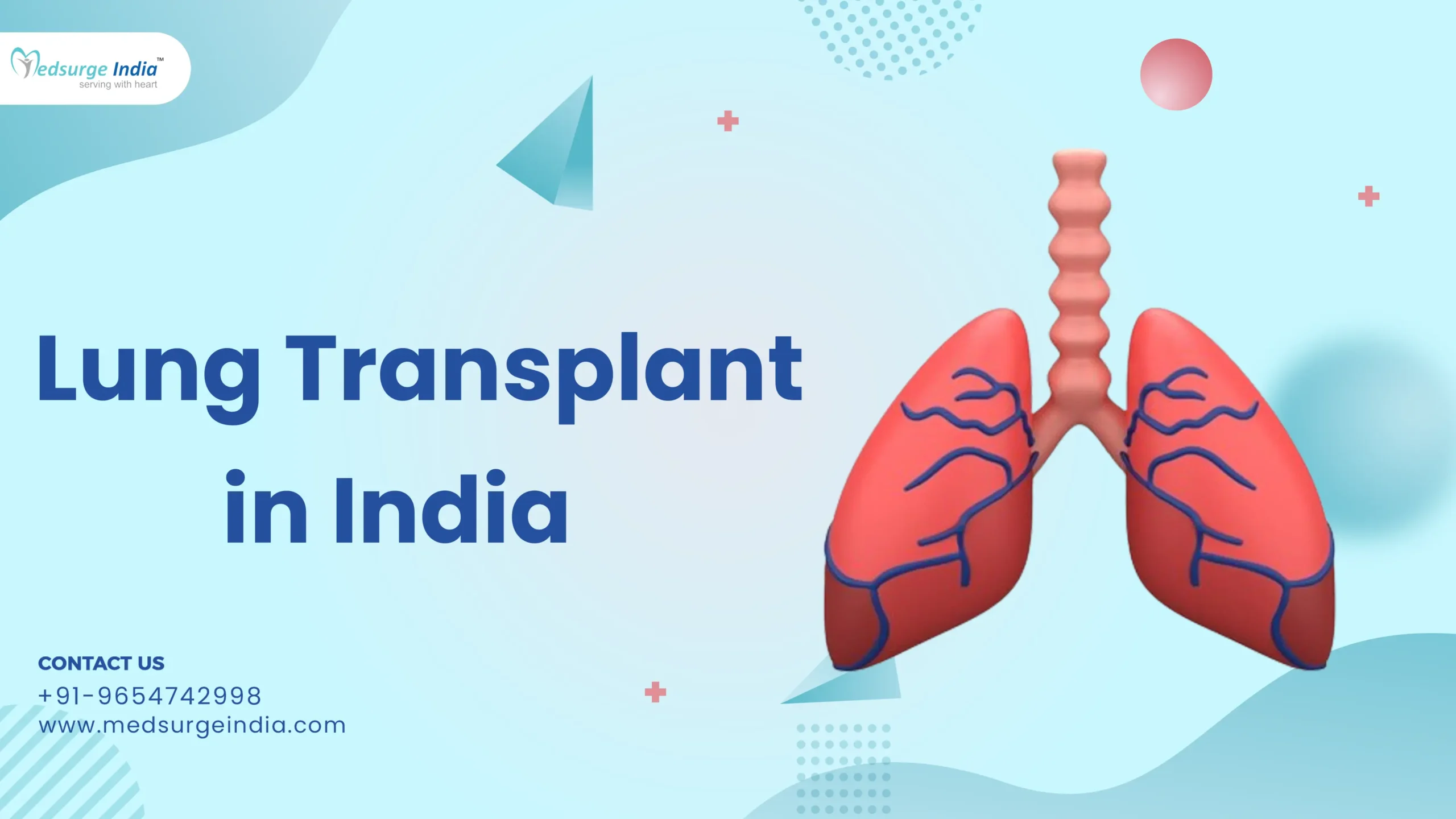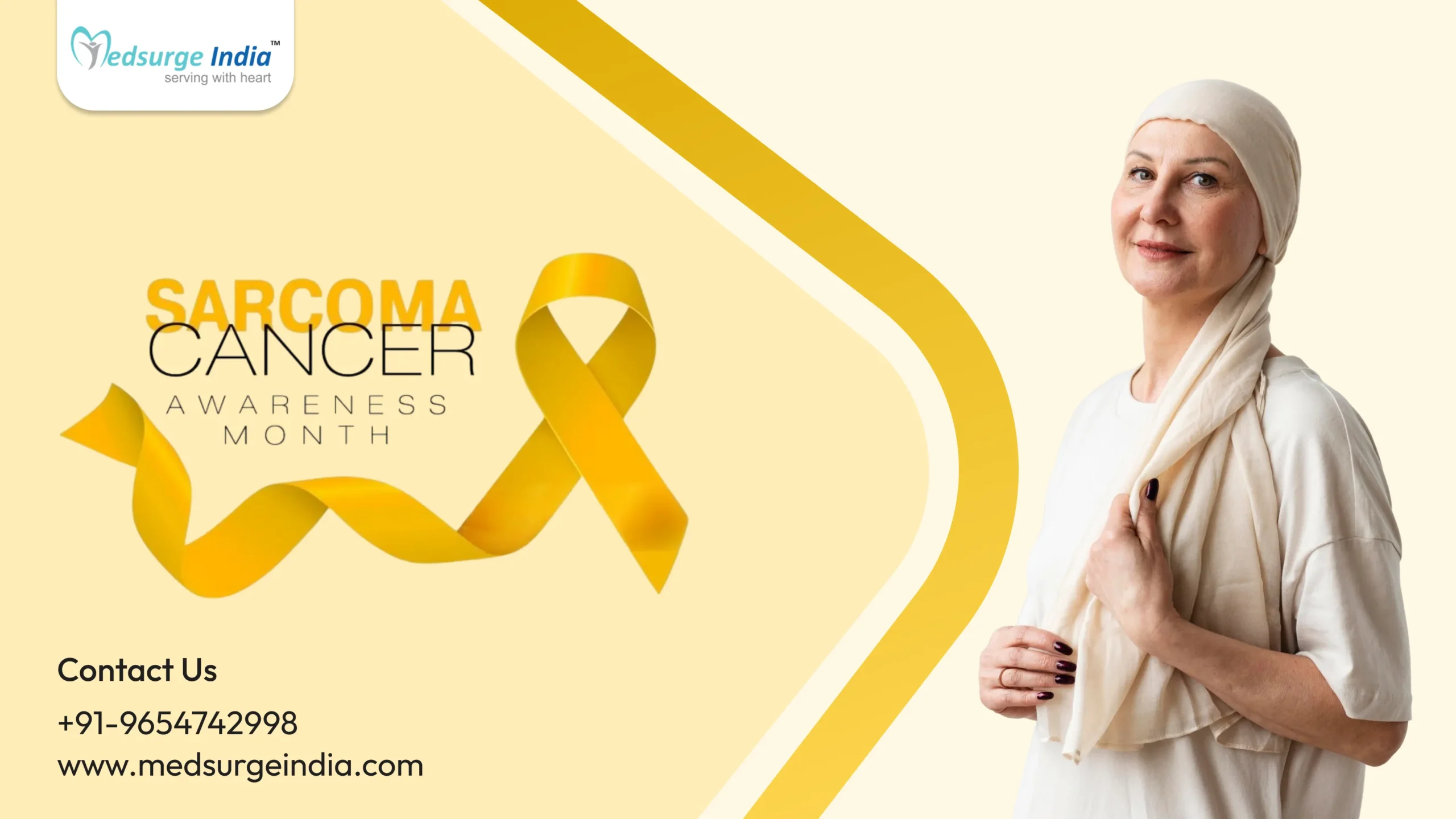
Lung Transplant in India
The lung is a vital organ of the human body that performs exchanges of gases to provide oxygen to the body. A normal lung is spongy and soft in nature. They can stretch as they are made up of an elastic tissue. Multiple diseases can destroy the lungs or impair their capacity to function, restricting the body from getting oxygen and making it impossible to carry out their function.
Lung transplant becomes an option in those cases when a disease condition prevents the lungs from functioning normally and cannot be effectively treated with medication, or if medication is no longer effective. Many people consider having a lung transplant in India due to its affordability, quality treatment, and advanced medical infrastructure of the Indian hospitals.
Who Needs a Lung Transplant?
Lung transplant is performed only in people with end-stage lung disease, and those who cannot be further treated with alternative treatments. People who are having lung transplant in India are usually suffering from the following conditions:
- Sarcoidosis
- Chronic obstructive pulmonary disease (COPD)
- Cystic fibrosis
- Emphysema
- Pulmonary fibrosis
- Pulmonary hypertension
Generally, there is no age limit for lung transplant in India. However, people above the age of 70 are not typically subjected to it.
Types of Lung Transplant
There are different types of lung transplant procedures. Each of them has pros and cons and the choice will be determined by the patient’s condition and other factors.
- Single lung transplant – Only one lung is replaced.
- Double lung transplant – Both lungs are replaced.
- Bilateral sequential transplant – Also known as bilateral single. Both lungs are replaced at one time.
- Heart-lung transplant – The lung and the heart are transplanted at the same time.
Eligibility Criteria For a Lung Transplant
Each patient’s eligibility for a lung transplant is assessed on an individual basis, although there are some basic eligibility criteria for having a lung transplant in India including:
- Severe or end-stage lung disease that cannot be further treated without transplantation.
- A recipient’s good overall health condition to be able to handle the surgery.
- No other chronic or underlying diseases which cannot be cured.
- To be aware of the obligations both before and after the procedure.
Pre-Surgical Preparation
To undergo a lung transplant procedure, you have to be free from nicotine at least for several months before you are placed on a transplant list. After that, your overall health and your lung condition will be determined by performing some tests such as:
- X-rays, ultrasound, CT scans.
- Pulmonary function tests.
- Lung biopsy.
- Dental examination.
Women may also required to have a Pap test, gynecology evaluation, and a mammogram. If you are eligible for the procedure, blood tests will be conducted to help you find a good donor match. Finding a good match decreases the chances of the possibility of organ rejection.
Psychological and social evaluation is another important step that includes evaluation of
Lung Transplant Procedure
The surgery is always performed under general anesthesia to make the surgery painless and to maintain body stability. After that
- An intubation tube will be inserted into the patient’s body to help with breathing during the surgery. It is also used to deliver medication and it also aids in maintaining other body functions.
- The chest is cut open and the blood vessels and airways are cut.
- The damaged lung is removed from its place.
- A healthy lung is attached carefully in place of the diseased lung.
- The blood vessels are reconnected and the incision is sewn closed.
- The area is covered with a sterile bandage.
The duration of lung transplant in India will vary based on the procedure and the complications. Generally, a single lung transplant lasts for 4 to 8 hours while a double lung transplant could take up to 6 to 12 hours.
Helpful:- All you need to know about Lung Transplant Procedure in India
Risks Associated With Lung Transplant
Like all other major surgeries, there are several risks and complications associated with lung transplant. Some of them are:
- Bleeding
- Blood clots
- Infection
- Blocking or restriction in the blood vessel that supplies the new lung(s)
- Blocking or restriction in the airways
- Severe pulmonary edema
- Rejection of the new lung(s)
- Primary graft dysfunction
Post-Operative Care
The patient has to stay in the ICU for one to three weeks following post-surgery. The surgeon will discharge the patient if there are no signs of complications and if the patient is getting better. Pulmonary rehabilitation is usually recommended by a doctor to improve the breathing. This may include simple exercises, counseling sessions, and education.
A few months following surgery, patients will have regular follow-up appointments with the doctor. Any signs of potential complications, organ rejection, etc. will be always checked thoroughly. Also, patients have to take immunosuppressant medication for the rest of their lives to prevent the immune system from attacking the new organ.
Adopting a healthy lifestyle is very important to have a good outcome. You may completely cease smoking as it can further damage the lungs again.
Success Rate of Lung Transplant in India
The success rate of lung transplant in India is determined to be 87%. Approximately, after lung transplant surgery, the one-year survival rate is almost 80%, and the five-year survival rate is around 50%. However, these statistics that denote the success rate of lung transplant in India can widely vary as to certain factors such as:
- The overall health of the patient.
- The underlying need for the transplant.
- How well the body responds to the surgery.
Challenges For Lung Transplant in India
Although the success rate of lung transplant in India is quite high, there are still some areas that could be improved upon for better results.
- Organ availability – Lung harvesting is performed on only 20% of multi-organ donors in India.
- Selection of recipients – Proper selection of recipients is one important key factor influencing the results of a lung transplant.
- Allocation of waiting lists and organs – An efficient national transplant allocation system is necessary for the successful integrated development of donation and transplantation.
- Post-transplantation care – Initial follow-up care after lung transplantation is very complicated and it requires a great deal of patient cooperation. A fully functional transplant center is required for the patients to receive close monitoring, early detection of potential complications, and preventative treatment.
Complications – Lung transplant is associated with multiple complications. The hospital or any treatment center must have well-equipped infrastructure to handle any complications to ensure a successful outcome.
Lung Transplant FAQs:
Q: How Long Can a Person Live After Having a Lung Transplant?
A: The outcome of the surgery highly varies among individuals. On average, after a lung transplant, 83 out of 100 patients survive after one year, and 55 out of 100 patients are still alive on average after 5 years. Some patients even survive for more than 20 years.
Q. What is the Cost of a Lung Transplant in India?
A: The average cost of Lung transplant in India is Rs. 19 Lakh (23,000 USD). The maximum cost for lung transplant in India is up to Rs. 35 Lakh (42,000 USD).
Q: Is It Possible To Survive On One Lung?
A: Most people can survive on one lung if necessary. Unless the other lung is injured, one lung can normally expel enough carbon dioxide and provide enough oxygen. The body needs oxygen to function. The lung has to get rid of waste products like carbon dioxide by exchanging it with oxygen.
Q: What Is The Main Problem Associated With Lung Transplants?
A: Infection. Those who have had lung transplants are more susceptible to infection than the general population for a variety of reasons. Following a transplant, bacterial or viral pneumonia are common infections.
Q: What Is The Age Limit For Lung Donation?
A: A lung transplant is surgery done to remove a diseased lung and replace it with a healthy lung from another person. The surgery may be done for one lung or for both. People of practically any age can undergo lung transplants, including newborns, adults, and occasionally even older adults up to the age of 65.
Q: Is It Possible To Donate A Lung While Being Alive?
A: Technically, an entire lung cannot be donated. However, in some transplant centers, you can donate the lobe of your lung. The left lung has two lobes and the right lung has three lobes which can be donated.






